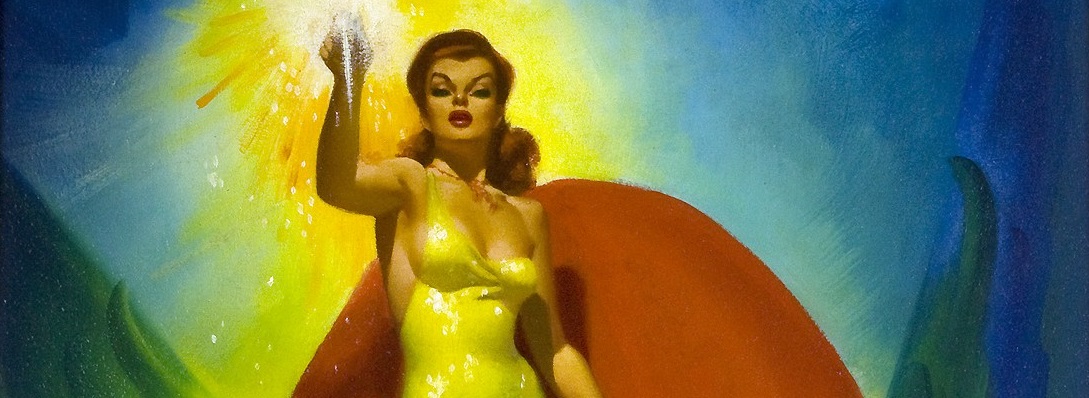
Patrick B. Sharp introduces Darwinian Feminism and Early Science Fiction: Angels, Amazons, and Women.
Despite all the work that has been done on women’s SF over the past two decades, I still hear people at conferences state with confidence that women didn’t publish – or were excluded from publishing – in SF magazines before the Second World War. This is not even remotely true. Darwinian Feminism in Early Science Fiction builds on the earlier work of SF scholars to demonstrate how important women were to SF magazines of the 1920s and 1930s. Women such as C. L. Moore, Leslie F. Stone, and Clare Winger Harris were well known authors to readers of SF magazines during the period. We know from the author pictures, fan letters, and editor comments in these magazines that only one of these women (L. Taylor Hansen) hid her gender.
It is also common for those who are aware of these authors to assert that they weren’t feminists. While that is certainly true in some cases – Leigh Brackett comes to mind – recent scholarship on feminism of the early twentieth century provides a context for revising this image. Historian Kimberly Hamlin has demonstrated how a reform-minded branch of feminism that she calls ‘Darwinian Feminism’ used Charles Darwin’s ideas about sexual selection to open up new debates about gender roles in society.
The writing and lectures of Darwinian feminists provided the scientific basis for the utopian narratives of authors such as Charlotte Perkins Gilman, Leslie F. Stone, and Lilith Lorraine. More broadly, Darwinian feminism gave a particular form to a centuries-long critique of scientific masculinity and the colonial scientific imagination that was a major theme in the writing of Margaret Cavendish and Mary Shelley. In the hands of the women science fictioneers of the 1920s and 1930s, evolutionary ideas were deployed to imagine worlds where women were in full control of their bodies, pushed scientific progress alongside men, and used feminine civilisation to contain masculine savagery. It is time for these overlooked, ignored, and misunderstood women to take their rightful place in the history of science fiction and the history of feminism.
Patrick B. Sharp is Professor of Liberal Studies at California State University, Los Angeles. He is the author of Savage Perils: Racial Frontiers and Nuclear Apocalypse in American Culture (2007), and co-editor of Sisters of Tomorrow: The First Women of Science Fiction (2016).


